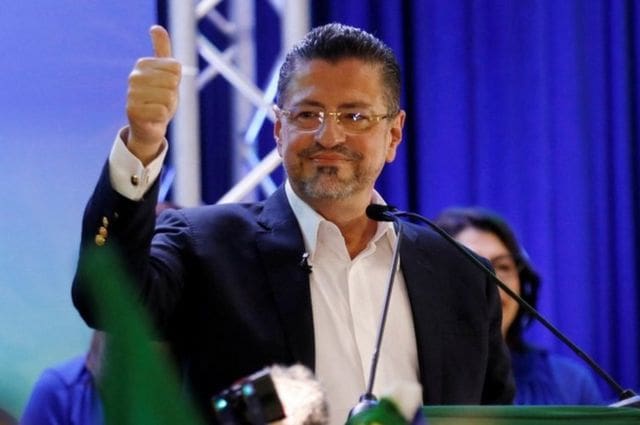
Welcome to President Rodrigo Chaves
Maverick economist Rodrigo Chaves won Costa Rica’s presidency as voters rejected traditional politics amid growing social discontent and concerns over corruption, unemployment and the national debt.
President Chaves, who also briefly served as finance minister for outgoing President Carlos Alvarado, was second in a first-round vote in February. Seen as anti-establishment, Chaves has vowed to shake up the ranks of the political elite, even pledging to use referendums to bypass Congress to bring change and shake up the Costa Rican political system.
President Chaves, a longtime former World Bank official, won with 52.9% of the vote, according to the electoral tribunal’s tally of the run-off ballot. Rival candidate and former Costa Rican President Jose Maria Figueres secured 47.1%.
Figueres quickly conceded defeat after results were announced. “I receive with the deepest humility this sacred decision of the Costa Rican people … This result for me is not a medal or a trophy, but an enormous responsibility,” 60-year-old Chavez said to a crowd of supporters in the capital San José.
Many Costa Ricans said they were looking for a break with the politicians of the past, a trend that went against Mr. Figueres, who comes from one of the country’s most influential political families. Unemployment and an economic crisis dominated the campaign between two scandal-tainted candidates, relieved not to have their alleged past indiscretions take center stage.
But with 23% of the population living in poverty and unemployment soaring to 14%, after a series of corruption scandals, Costa Ricans seemed more focused on getting back to work and a higher standard of living. While Mr. Chaves has emphasized his plan to break with what he calls “privileges” of Costa Rica’s established political parties, he presented himself as an outsider to the established order.
In large part, he benefited from widespread discontent in the country, as Costa Ricans are frustrated at what they see as worsening corruption in a country whose tourism-based economy has been badly affected by the coronavirus pandemic.
The election of conservative Chaves, a member of the Social Democratic Progress Party, marks a monumental shift from the progressive rhetoric of the last two presidents of this Central American country. President Chaves is seen in political circles as having similarities to other populist right-wing leaders in the Americas.
Howler extends a warm welcome to President Rodrigo Chaves. We look toward the future, hoping that Costa Rica’s traditional stance on sustainable and regenerative culture and development, renewable energy and clean water initiatives continues to progress under this new administration, along with the nation’s international position on climate change, education and human rights. We also hope that President Chaves will continue to support dialogue and compromise, cooperation and collaboration and that his presidency will also see the importance of culture, music, fashion, film and the arts as an essential part of promoting tourism in a country whose lifeblood depends on it.
